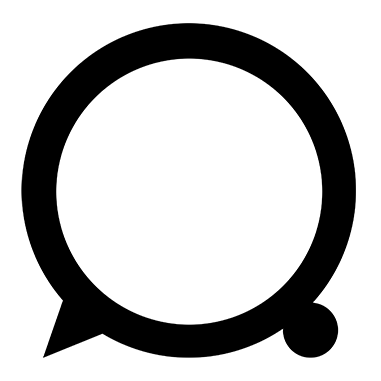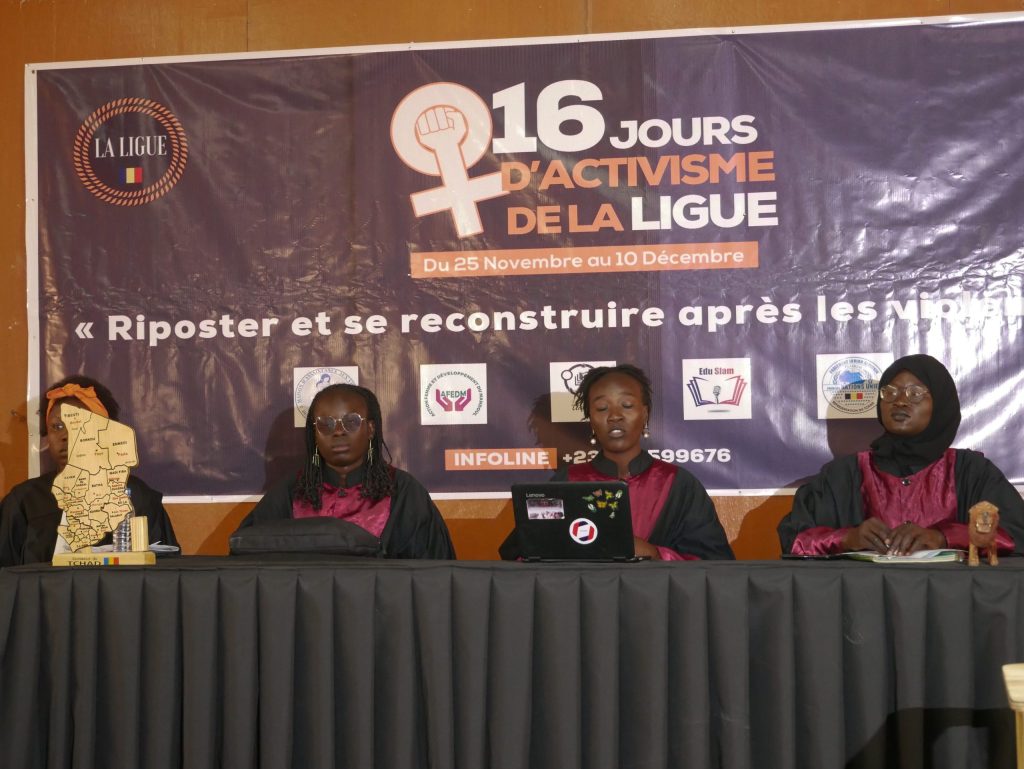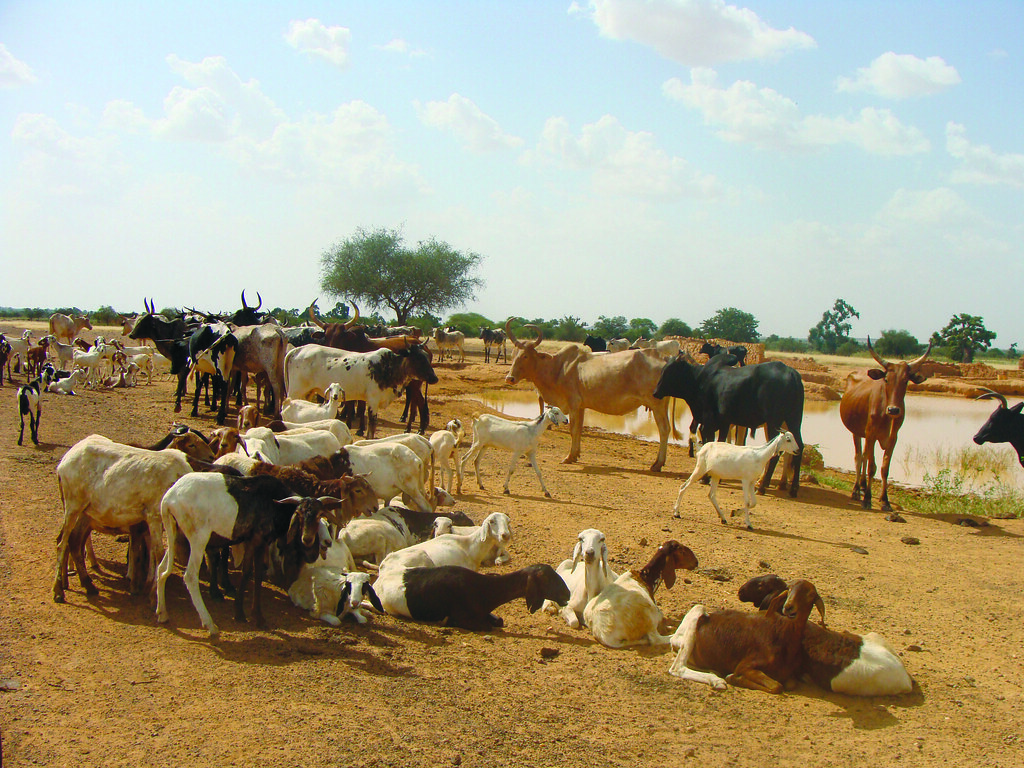A video rubrique by Deuh’b Emmanuel Zyzou and Bokal. This rubrique is bilingual: French version is available below.
Like other countries in Sub-Saharan Africa, Chad has been undergoing an unprecedented crisis in recent times. According to the leadership of the country, one of the major causes of the collapse of Chadian economy would be the fall of oil price, a resource the country completely depends on since the exploitation of the black gold started in 2003. This would have led the country’s economy into a paralysis.
The argument proposed by the government is rejected by the opposition and the civil society, who affirm that the crisis that is currently shaking the country is not merely economic, but lies on political and social root causes. A proof of this stance are the last presidential elections won by Idriss Déby, who has been at the leadership of the country for 26 years, and highly contested by the opposition. The contestation of the result of the elections has led to a state of agitation in the country, with the arrest of opinion leaders, political opponents, journalists, student demonstrations which most often ended in tragic deaths, conflicts between farmers and breeders, recurring strikes for protesting against the delays in the wage assignments of civil servants and the cuts to the internet connection.
The media and the civil society are likely to play a role of counter-power and regulators of these social tensions. Nevertheless, most of these actors are still lacking in means, or are politicized . These factors lead to fragility in this category. Civil society has developed in a context where the political class has lost much of its credibility among the population.
Faced with this extremely tense sociopolitical context and with the increasing difficulties in accessing reliable information, the projects Voice4Thought and Connecting in Times of Duress try to draw the portraits of Chadian opinion leaders. Our correspondents on site use video to introduce Chadian musicians, artists, political activists, web-activists, journalists and feminists that are active on current issues. These video portraits of a few minutes aim to provide a broader audience with the analyses of these leaders on current issues such as human rights, governance and freedom of expression, which are crucial elements in the foundation of a democracy.
The objective of these portraits is to produce a free and independent expression tool, that is also based on field research, to give voice to these men and women who most often do not get the chance to be heard, in Chad or elsewhere.
Deuh’b Emmanuel Zyzou
[circles_gallery columns=”1″ ids=”3768″]
Portraits des leaders d’opinion tchadiens
A l’instar des autres pays du sud de Sahara, le Tchad traverse une crise sans précédent ces derniers temps. L’une des causes majeures serait, selon le pouvoir, la chute du baril de pétrole dont le pays dépend entièrement depuis l’exploitation de l’or noir en 2003. Ceci à entraîner le pays dans une paralysie totale sur le plan économique. Un argument que rejettent l’opposition et la société civile. Pour elles, la crise que traverse le pays n’est pas que économique, mais politique et sociale. La dernière élection présidentielle remportée par le pouvoir en place depuis 26 ans et largement contestée par l’opposition en est la preuve. S’en suis les arrestations des leaders d’opinions, des opposants politiques, des journalistes, des manifestations des élèves et étudiants qui se terminent le plus souvent par des morts, des conflits entre agriculteurs et éleveurs qui perdure avec à la clé des bains de sang, des grèves répétitives des fonctionnaires pour retard sur les salaires et des coupures de la connexion internet.
La société civile, les médias sont susceptibles de jouer un rôle de contre-pouvoirs ou de régulateurs des tensions sociales mais la plupart manquent encore de moyens ou sont politisés. Ceci entraîne la fragilité dans cette classe.
La société civile s’est développé dans un contexte où la classe politique a perdu une part importante de sa crédibilité auprès de la population.
Face à ce contexte sociopolitique extrêmement tendu et ou l’accès à l’information fiable devient difficile, les projets Voice4Thought et Connecting in Times of Duress avec ses correspondants sur place au Tchad dresse le portrait des leaders d’opinions tchadiens : artistes musiciens, activistes politiques, web-activistes, journalistes, féministes et leur opinions sur des questions d’actualités. Ces portraits vidéo de quelques minutes visent à fournir à un large public des analyses personnelles de ces leaders sur des questions de l’heure en matière de droits humains, de la gouvernance, de la liberté d’expression qui sont entre autre le fondement de la démocratie.
L’objectif de ces portraits est de produire, sur la base de recherche de terrain un outil d’expression libre et indépendante. Donner la voix à ces hommes et femmes qui, le plus souvent n’ont pas la chance de se faire entendre que ce soit au Tchad ou ailleurs.
Deuh’b Emmanuel Zyzou
Photo: Institut Français Tchad, hip-hop art, home for Voices. 2015. Miram de Bruijn
Read more: click here to read Deuh’b Emmanuel Zyzou’s blog Rapportage de N’djaména and V4T’s focus on the current events in Chad.

A computer scientist trained at HEC TCHAD, Zyzou was a computer graphics designer and then in charge of publishing at Editions Sao (a book publishing house) for five years (until 2015). Activist blogger. Youth ambassador of UNFPA Chad. Member of the Youth Council (US Embassy Chad). In charge of cultural affairs at the Chad Plus association, which led him to make several trips to Tunisia, Indonesia and Senegal. Very concerned by human rights issues, he left everything to study law in 2015 (Faculty of Legal and Political Sciences at the University of N’djamena).





